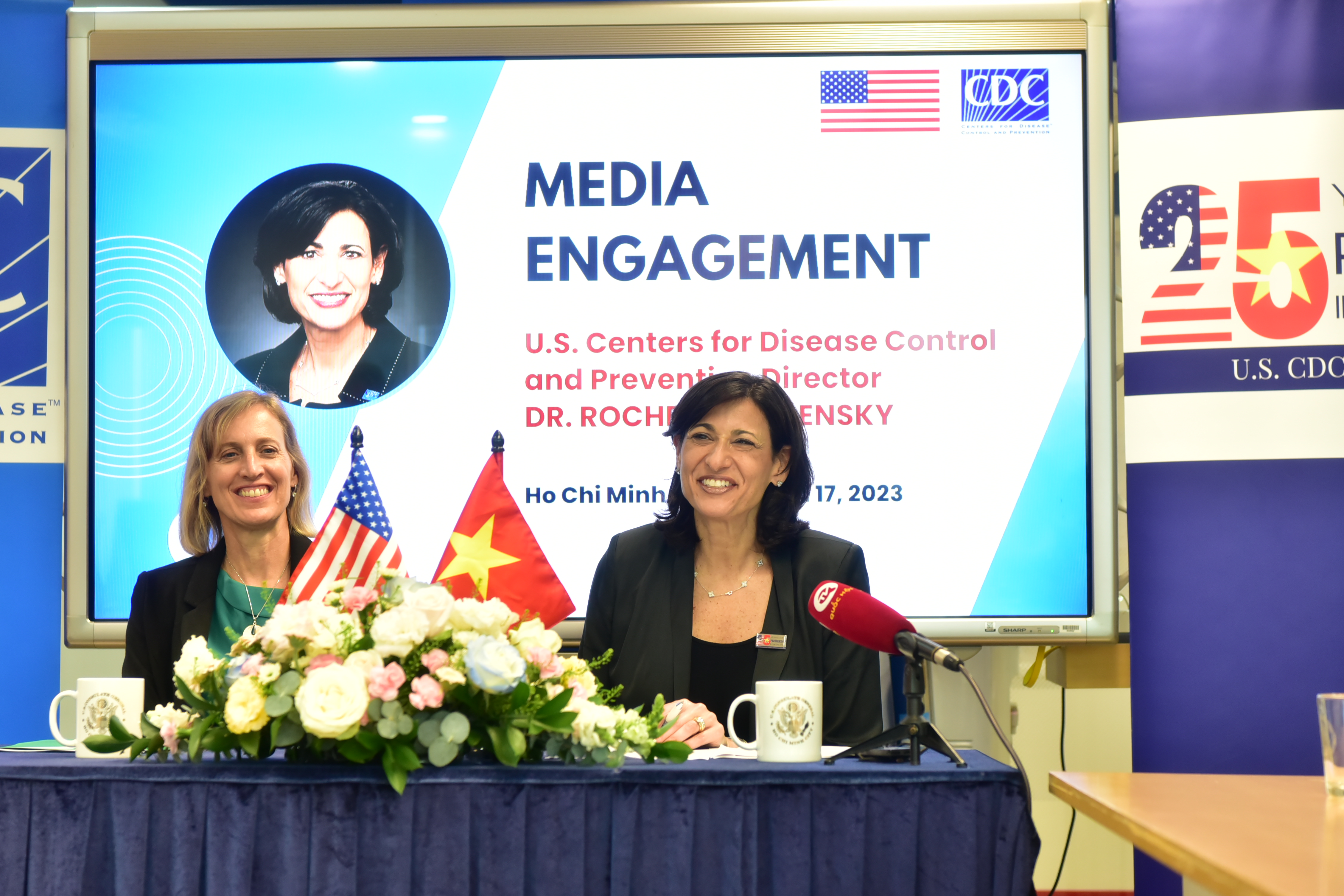During her four-day visit to Vietnam, starting on March 15, to mark 25 years since the CDC Vietnam country office opened, Dr. Rochelle P. Walensky, director of the U.S. Centers for Disease Control and Prevention (CDC) praised the partnership with Vietnam and expressed her desire to strengthen the collaboration in public health the two countries have established.
Walensky said that on the first day of her visit, she signed a letter of intent with the Vietnamese Ministry of Health in which the CDC is committed to the development of a Vietnam National CDC.
The coming Vietnam National CDC will enable Vietnam to coordinate its response in health emergencies with a trained workforce, a data and disease surveillance system, and a laboratory system so that it can detect a public health threat when it happens.
Vietnam is linked to global health security, according to Walensky.
“So much of the work that we do together is in global health security. We recognize and want to do the important work of protecting the people of Vietnam. We also recognize that a threat anywhere is a threat everywhere and we work together to prevent those threats all over the world,” she stressed.
In 2021, the CDC opened a new regional office - Southeast Asia (ASEAN) Regional Office based in Hanoi.
The office will take lessons learned in Vietnam to places in ASEAN where the CDC does not have a large, robust country office and Vietnam can play a role as a leader in public health.
The CDC has cooperated with Vietnamese partners in providing field epidemiology training programs for decades to prepare for the next public health threat.
Dr. Eric Dzuiban, Vietnam country director for the CDC who was at the meeting along with director Walensky, shared that the overall number of people attending this training was still lower than the mark Vietnam wants to see and the international standard it wants to meet.
Different levels of training have been provided such as year-long and shorter courses to meet the needs of more practitioners.
Regarding future threats, Walensky said that experts in the field anticipated that future pandemics would be influenza.
The CDC is constantly on the lookout for influenza as well as avian influenza and the animal-human interface.
As for COVID-19, Walensky believed the CDC in the U.S. and in Vietnam will continue to work together regardless of whether the pandemic is a pronounced public health emergency or it is scaled down.
People should continue to be vaccinated and to get their level of immunity up against the virus, she recommended.
“Our work continues with the same importance and vigor and dedication as to whether or not there is a public health emergency. We recognize COVID-19 is still with us. There are still people with infection. There's still vaccination that can be delivered. Our work and commitment continues,” she stressed.
As no one can tell whether a new more invasive and aggressive variant will come, Walensky believes that working collaboratively is the answer to protect public health and to train the next generation of public health workers.
The CDC has worked to support global health for over 60 years with a goal to create a world where people -- in the U.S. and around the globe -- live healthier, safer, and longer lives.
The CDC has a global presence and extends to over 60 countries where the organization is working to address global challenges such as HIV/AIDS, malaria, influenza, tuberculosis, and more.
The CDC Vietnam country office was established 25 years ago in 1998.
The first cooperation was to respond to the HIV/AIDS epidemic in Vietnam.
That partnership continues today and has saved many Vietnamese lives by engaging with the Ministry of Health alongside local and community partners.
Like us on Facebook or follow us on Twitter to get the latest news about Vietnam!




















































